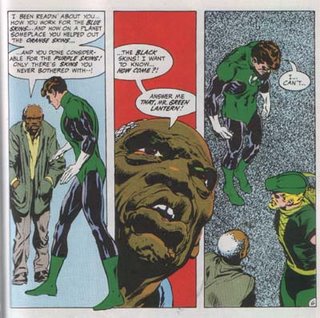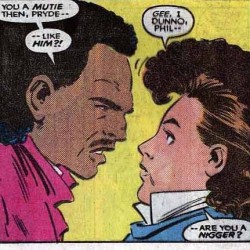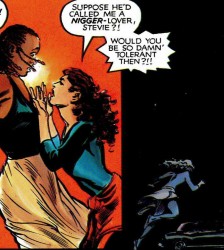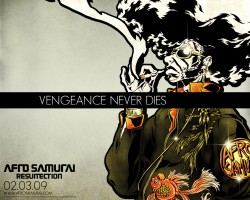
Black History Month ’09 #08: The Theme Song is “It’s Yours”
February 8th, 2009 Posted by david brothersThree things happened on November 18, 1992. The first is that I turned nine years old. Finally! I was almost as old as Bart Simpson, who was one of my many childhood heroes. Second, Spike Lee’s feature length biopic “Malcolm X” was released. I saw it that weekend, if not on the day of release, at the big theater in the next town over. The last of the three is that Superman died, at least according to Roger Stern’s novelization.
The Death of Superman was basically my introduction to DC Comics. I wheedled and begged and got a few of the books, and eventually ended up tearing through the novelization. This is why I didn’t know that Hal Jordan was involved in the climax of the mega-arc until years later, and only recently found out that Bloodwynd, the only black guy on the JLA at that point, was actually the Martian Manhunter.
The movie was, in hindsight, much more of a milestone. It was my first introduction to the real Malcolm X, rather than the brief paragraphs we’d get in history books. All I really knew at that point was that he was a white people-hating, fast-talking, symbol of the violent side of the civil rights movement. Where Martin Luther King, Jr. was the tip-top of the non-violent resistance solution, meaning “the right choice,” X was the guy who advocated violence. He was the scary one. Don’t be like him, children, turn the other cheek.
It turns out that what I learned in my little history books, usually during Black History Month, wasn’t the whole story. The film filled in a lot of things that I didn’t even know I was missing. I didn’t know that he travelled to Mecca, nor that his views adjusted after he left. I had no idea that he wasn’t the bogeyman that he was portrayed as in school.
It didn’t instantly change my mind. I didn’t become Baby Huey P. Newton on the spot. I do think, however, that it fostered a healthy mistrust of things that you are taught, or at least a driving thirst to know more about everything. I’ve owned a copy of the Autobiography of Malcolm X ever since I was old enough to have a job. X quickly became my second favorite figure from that era, after being slightly edged out by Muhammad Ali.
Superheroes are, at their heart, about uplifting. My favorite hero by far is Spider-Man, and I think the character has a lot to say about both the human condition and having fun. At the same time, Malcolm X taught me a lot about self-esteem, being comfortable in my own skin, and being, or becoming, a man.
There is, or was, a common metaphor for how the X-Men worked back in the day. Professor Xavier was Martin Luther King, Jr., prophet of peace. Magneto was Malcolm X, the violent villain. After having read things by and about the man, it’s probably my least favorite analogy in comics ever.
It’s extremely reductionist. It doesn’t track with either of the two men’s beliefs or practices, and in a way, it’s amazingly insulting to both. MLK wouldn’t have been caught dead with a paramilitary fighting force in his basement, and Malcolm X didn’t, and would not, advocate genocide. The analogy only works if the two men are what I was taught in school: good and bad, two opposing forces fighting for basically the same thing.
A little education goes a long way. I’m pretty sure that every thing I’ve complained about with regards to inaccurate or offensive portrayals of blacks in comics can be fixed with a little extra knowledge. You don’t even have to spend any money, since twenty minutes on Google can get you very far these days. A few good key words and you’re going to be sitting pretty.
I don’t think that the fundamental source of all of the problems with blacks in comics is racism. Institutionalized racism plays a part, sure, but it isn’t the end-all, be-all. Ignorance (and here I do not mean malicious or “you’re dumb” ignorance, I’m referring to “not knowing something”) is the issue.
If you don’t know, you can’t do it. It’s as easy as that. You are not forbidden from doing it, but anyone who does know about what you’re talking about? Those people are going to point and they are going to laugh and they are going to sit in judgment of you… and you kind of deserve it.










